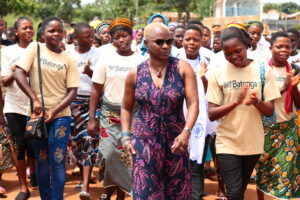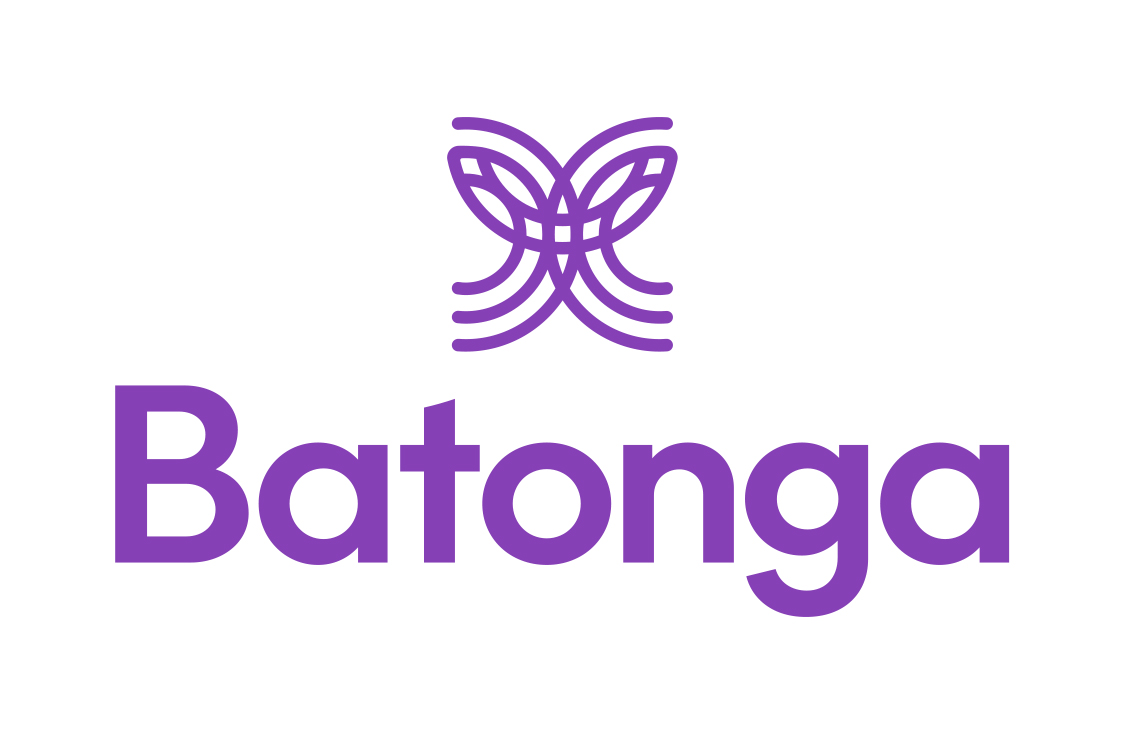Following its organizational values, Batonga builds a culture of support, empathy, collaboration and belonging that helps to promote openness among employees to allow them to talk about issues they may be facing. Batonga is working on its safeguarding policy, both for its program participants and for its female and male employees.
Our Story
Batonga, a leading organization dedicated to empowering women and adolescent girls, has emerged as a beacon of progressive gender equality practices. The organization commits to fostering gender equality within its workplace and has numerous impactful initiatives that set them apart.
Batonga’s commitment to gender equality and positive masculinity sets a commendable example for organizations worldwide. By implementing innovative policies and initiatives, Batonga has created a workplace culture that not only empowers women but actively encourages men to be partners in caregiving. The results of their work serves as an inspiring testament to Batonga’s dedication to fostering a more equitable and inclusive society.
Our Initiatives
One notable initiative focuses on supporting female employees during the critical period of childbirth. Batonga ensures a supportive environment by allowing flexible work arrangements, such as remote work options and reduced office hours, showcasing a commitment to facilitating work-life balance for new mothers. For example, a Batonga program manager was provided with special considerations for fieldwork after giving birth. The organization devised a system allowing her to travel with her baby and a caregiver, ensuring a conducive environment for both work and childcare.
“At Batonga, during the school year, meetings and activities are scheduled with flexibility so as not to interfere with daycare or school drop offs. Furthermore, at Batonga, offering time off to both female and male parents, following the birth of a child , contributes to offsetting gender imbalances in caregiving in employees’ households.”
– Wencelas Djokpe, Director of Program Quality and Partnerships, Men and Boys Engagement
Wence further highlighted the unique approach Batonga takes towards service providers (158 mentors and business coaches), acknowledging their essential role despite not being full-time employees. These providers also receive parental leave, challenging traditional norms and demonstrating Batonga’s commitment to gender equality, regardless of the temporary nature of employment.
Supporting Positive Masculinity
Batonga encourages positive masculinity and supports men in becoming active caregivers. The organization actively promotes shared responsibilities in domestic work, challenging societal norms where men are typically not seen as caregivers.
In their curriculum and community engagement sessions, Batonga educates men and boys on the importance of gender equality, breaking stereotypes and fostering a mindset where both genders contribute equally to domestic responsibilities. Wence Djokpe, Director of Program Quality and Partnerships, Men and Boys Engagement, serves as a role model within the organization, sharing his personal experience of actively supporting his wife and children.
Measuring Gender Equality
Batonga employs various indicators to measure their progress in achieving gender equality within the organization. These include the representation of women in leadership positions and monitoring cases of gender-based violence or harassment. The organization reports these statistics publicly to maintain transparency and accountability.
Future Commitments and Initiatives
Looking ahead, Batonga is set to launch a training plan for all employees, aiming to create a workplace culture that respects gender equality. This initiative underscores Batonga’s proactive approach to internal training and development, ensuring that all staff members are aligned with the organization’s values.

Additionally, the organization plans to develop the MenCare initiative, focusing on encouraging men to actively participate in caregiving roles. This initiative seeks to challenge existing norms and promote a cultural shift towards a more balanced approach to caregiving responsibilities.



